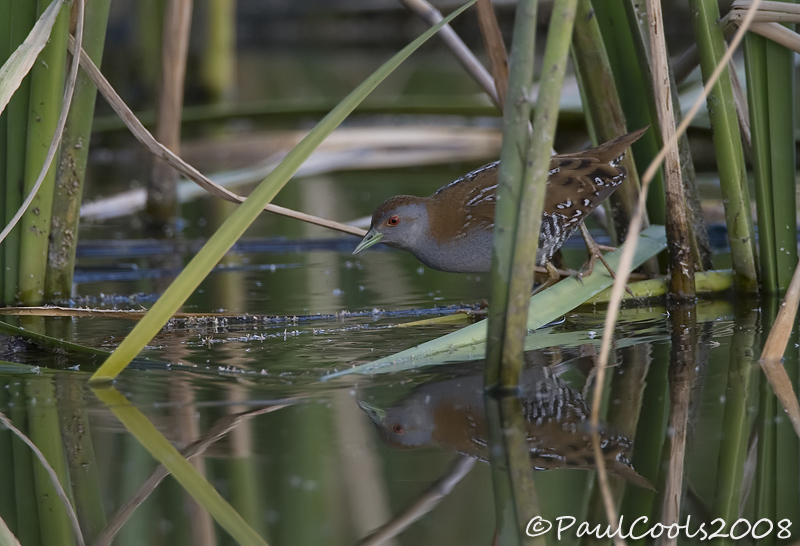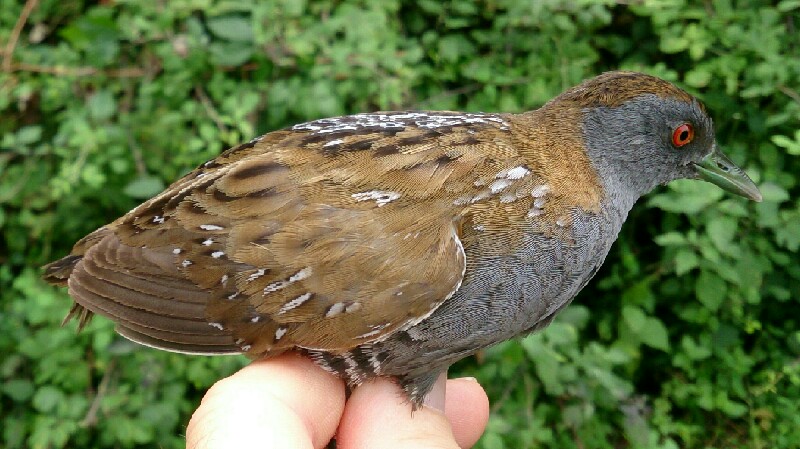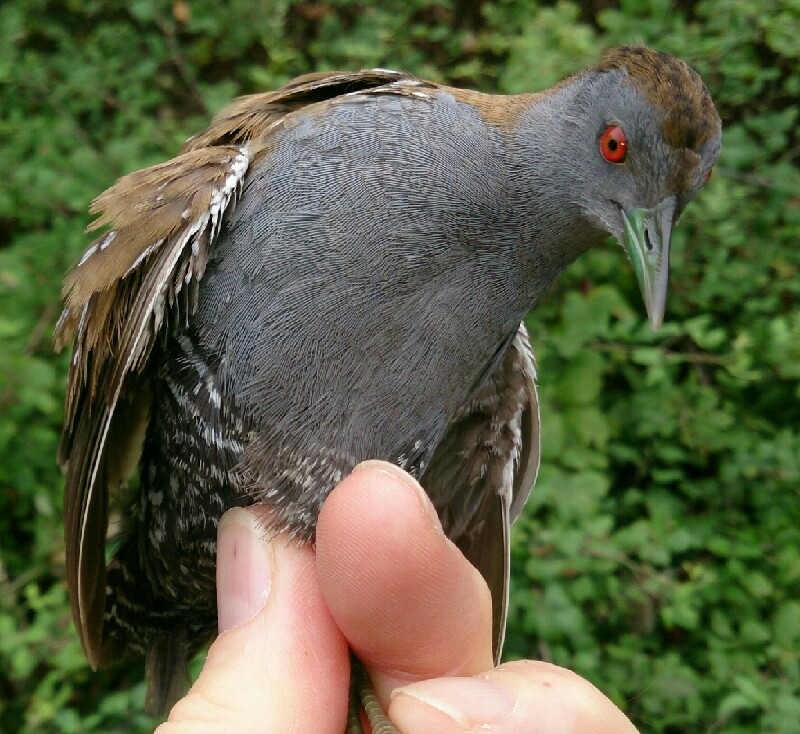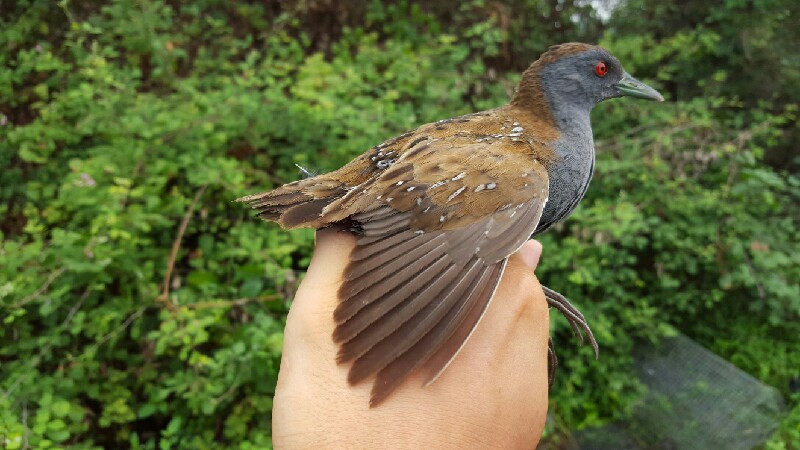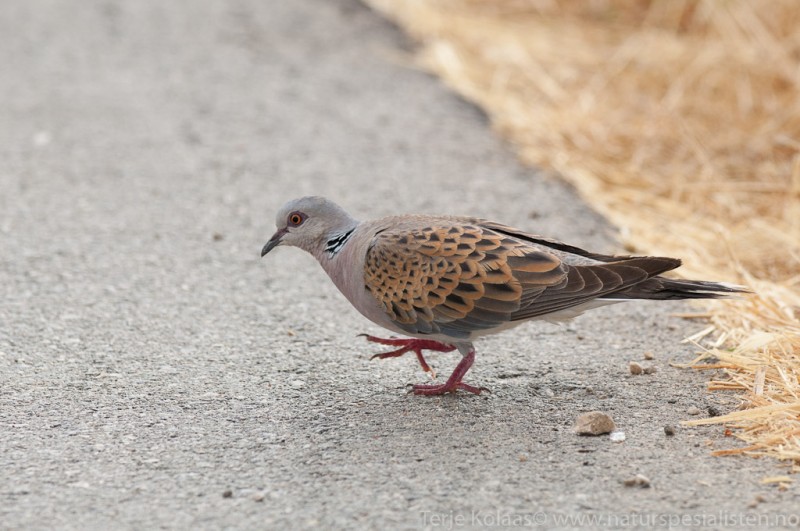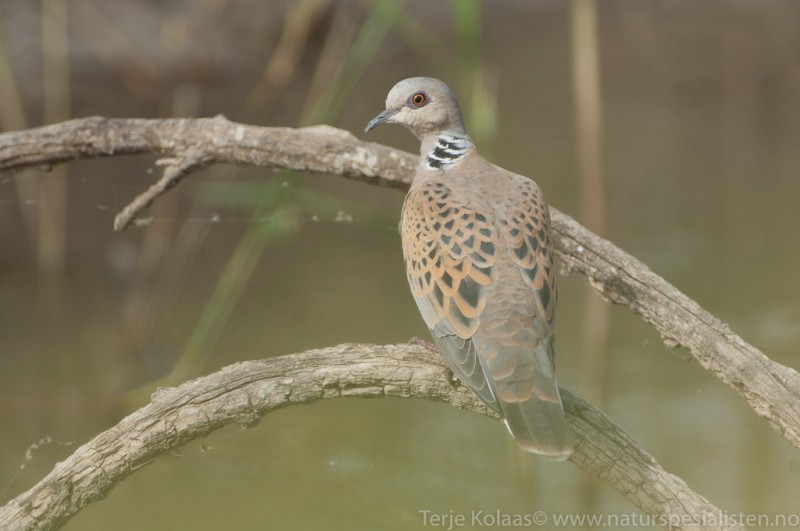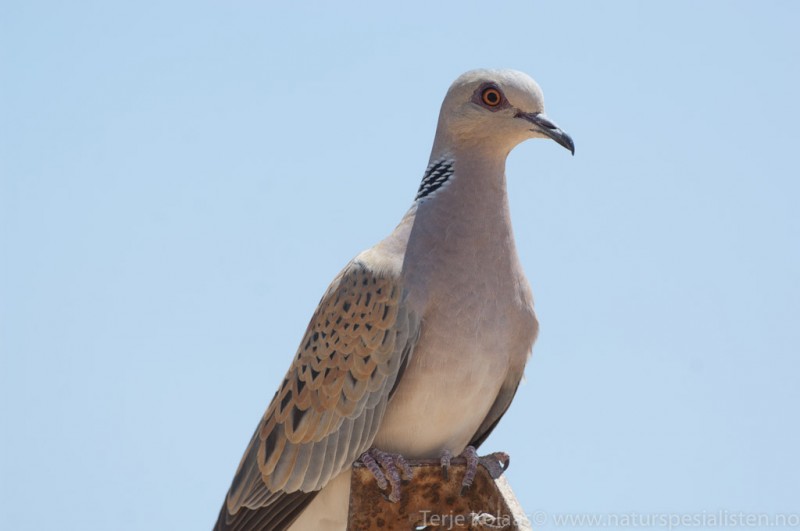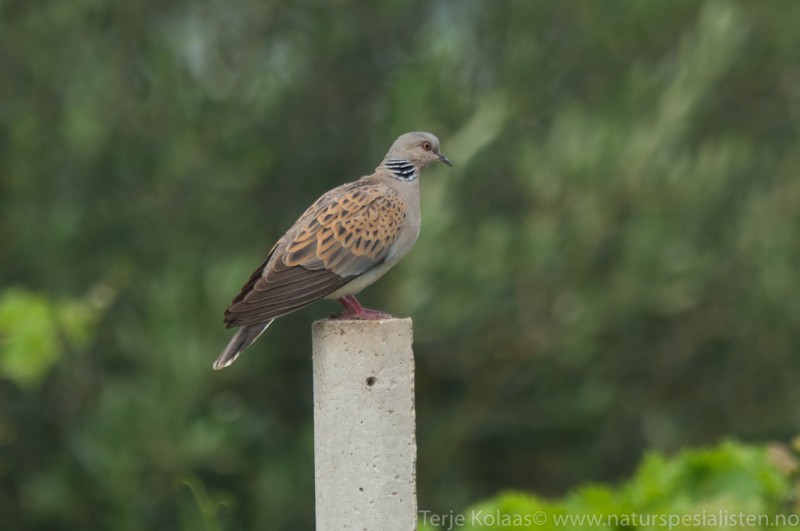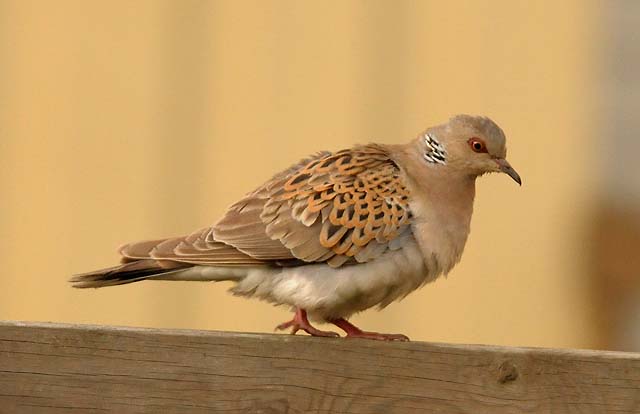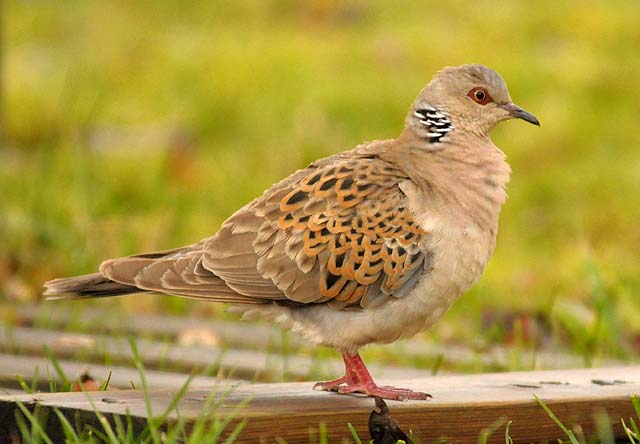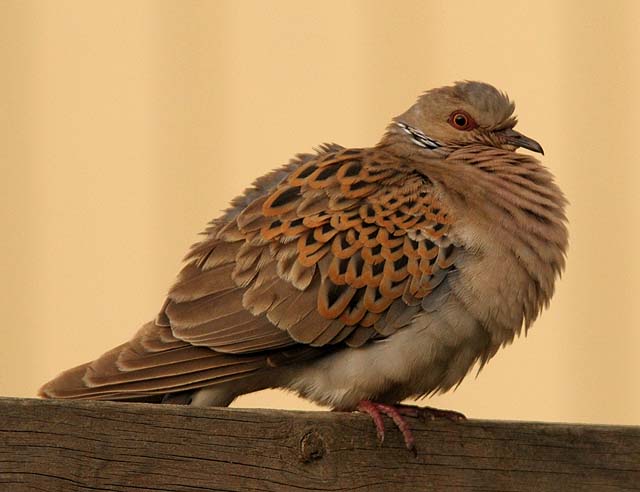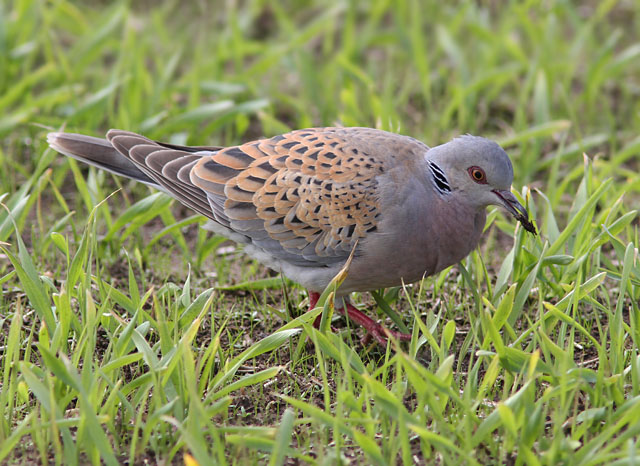Baillon's Crake (Zapornia pusilla)
Turtle Dove (Streptopelia turtur)
Most likely to be confused with Little Crake (P. parva). Most important field characters is the very short primary projection and lack of red base of bill. Some caution should be taken as missing or unorderly tertials can be confusing with regards to the projection, and immature Little Crake may sometimes also lack red base of bill. Flanks and belly more extensively barred than P. parva. Upperparts richer brown with white spots. Sexes alike, but females often with paler throat. Brown cheeks occurs in both sexes. Legs dirty olive colour and bill greenish. Immature even more easily confused with P. parva, but apart from the missing projection, note warmer brown upperparts and more heavily barred underparts, even on breast. Crown less evenly coloured than P. parva, with blackish speckles.
Sound:Rich repertiore. Male song easily overlooked due to similarity to The edible frog Pelophylax esculentus., and to being audible only a few hundred meters. The sound, a rolling "trrrrrrrr", differs from frogs in being drier and more stable in pitch. Sometimes the pitch rises slightly in the beginning of the call, but then remains stable also at the end. The call is uttered in 1-2 seconds intervals and each call is 2-3 seconds long. Some overtone modulation is common (stable pitch but change of vocal "ooeeii"). Unmated female sings with a more hurried "wirrr". Alarm call a series of nasal, hoarse "weeat" or a sharp "kriik".
Male song:
Distribution:
Wikipedia: map (se also Xeno-canto below)
Ecology:Birdlife ecology
Links:
Observation.org Latest observations
Image search Flickr NB! May give other species
CCCC-sound:Edmunds Racinskis, Licence,Link.
CC-photo:Peter Jacobs Photos, Licence,Link.
CC-photo:gilgit2, Licence,Link.
A small pigeon with barred neck-patch. Coverts and scapulars are dark with orangy-brown edges, giving the back a distinct scaly pattern. Neck and chest pink-grey, and belly white. In flight, the dark tail with contrasting, broad white band, is conspicuous in all plumages. Underside of wings grey, as opposed to Collared Dove. Upperside tri-coloured in black, grey and orangy-brown. Adults differs from Oriental Turtle Dove in having grey hind-neck and broader red-brown edges on coverts. Juveniles are drab, pale buff, and lacks the neck-patch.
Sound:Song: a deep, rolling, and slightly ascending cooing; "trrrrrrrrrrrrrrrrr trrr-trrrr" with variations in rhythm. Sometimes birds sticks to a phrase, but phrases varies between individuals.
Song:
Distribution:
Xeno-canto: map
Ecology:Birdlife ecology
Links:
Observation.org Latest observations
Image search Flickr NB! May give other species
CC
 English
English Albanian
Albanian
 Armenian
Armenian
 Bulgarian
Bulgarian
 Catalan
Catalan
 Croatian
Croatian
 Czech
Czech
 Danish
Danish
 Dutch
Dutch
 Finnish
Finnish
 French
French
 Georgian
Georgian
 German
German
 Greek
Greek
 Hungarian
Hungarian
 Italian
Italian
 Latvian
Latvian
 Lithuanian
Lithuanian
 Macedonian
Macedonian
 Norwegian
Norwegian
 Polish
Polish
 Portuguese
Portuguese
 Romanian
Romanian
 Russian
Russian
 Sami : Lule sami
Sami : Lule sami
 Sami : North sami
Sami : North sami
 Sami : South sami
Sami : South sami
 Scientific names
Scientific names
 Serbian
Serbian
 Spanish
Spanish
 Swedish
Swedish
 Ukrainian
Ukrainian



